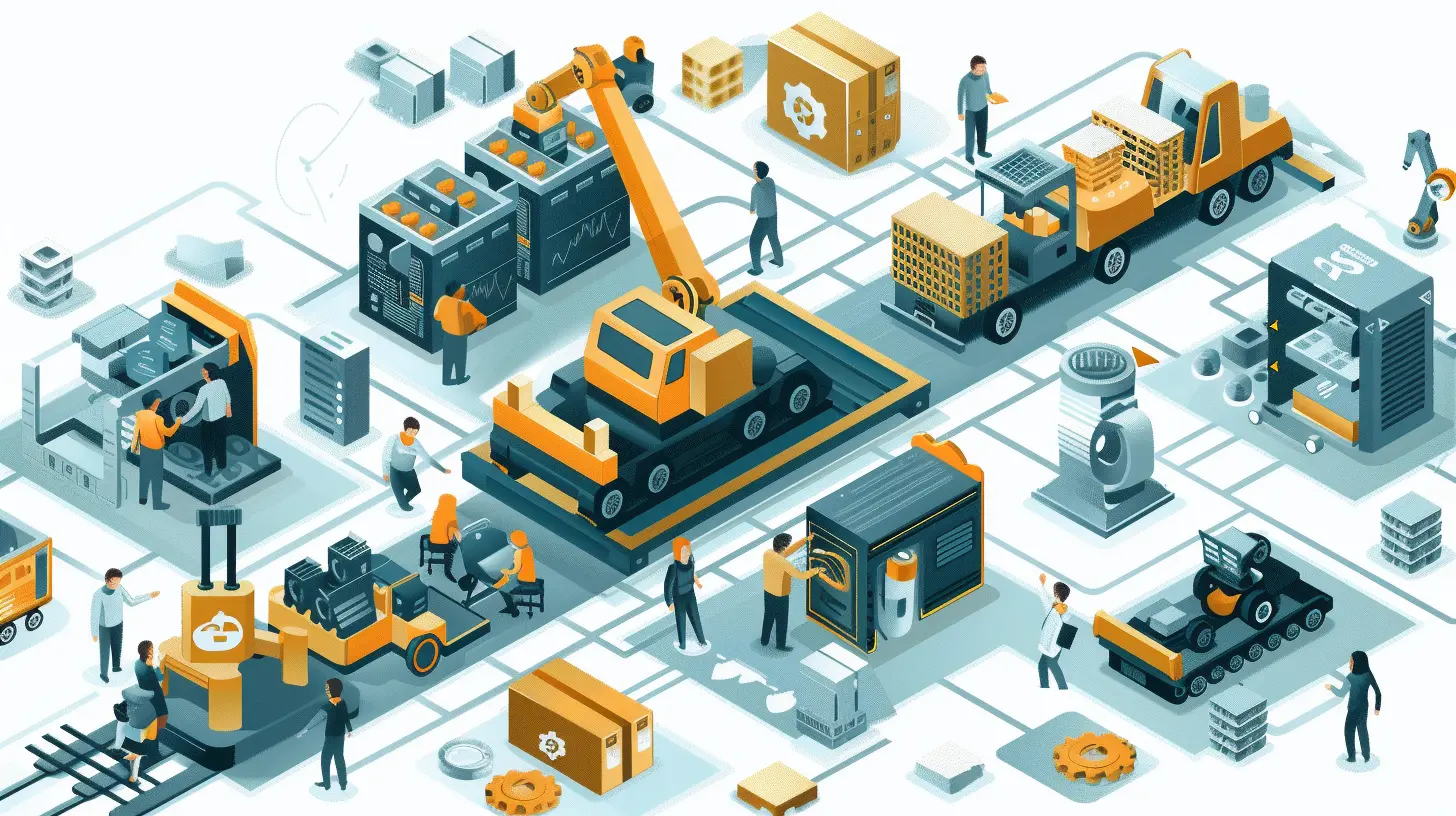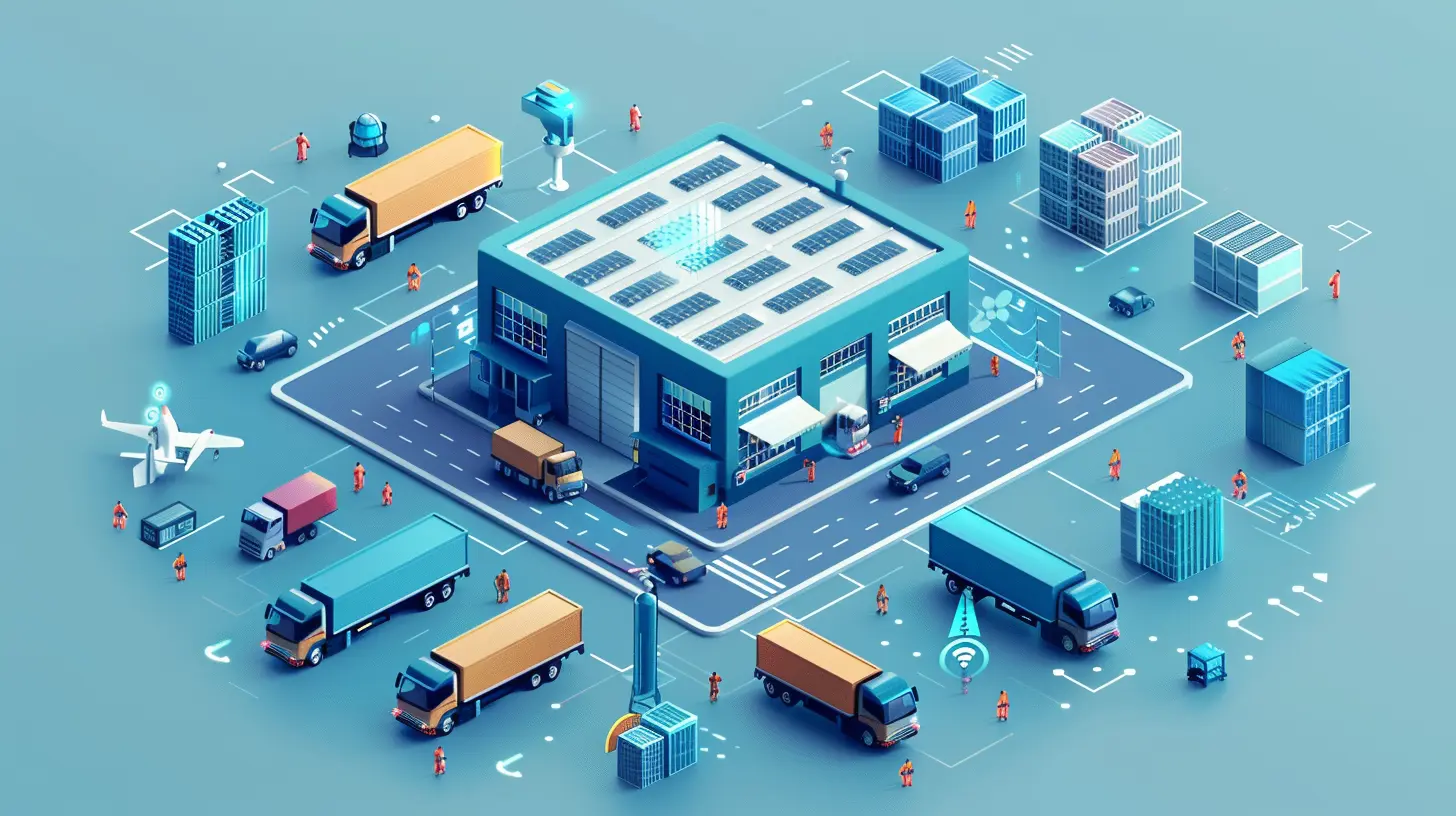How to Build a More Resilient Supply Chain Post-Crisis
22 April 2025
Let me paint you a picture. You’re running a marathon, and halfway through, your shoelace snaps. What do you do? Sit on the sidelines and curse your luck? Or pull out the spare lace you wisely tucked into your pocket and keep running? That spare shoelace—a.k.a. your Plan B—is exactly what businesses need post-crisis: a way to stay in the race when the unexpected happens.
Let’s face it—if the last few years have taught us anything, it’s that Murphy’s Law loves supply chains. Weather events, global pandemics, trade restrictions, and “unexpected” shipping delays (hello, remember the Suez Canal drama?) have all put supply chains through the wringer.
The good news? These bumps in the road are the best teachers! Businesses are now laser-focused on building more resilient supply chains. If you’re ready to level up your logistics game, buckle up—we’re diving into the nitty-gritty of staying agile, adaptable, and ahead of the game. 
What Exactly Is Supply Chain Resilience? (And Why Should You Care?)
First things first—what is supply chain resilience? Think of it as a supply chain’s ability to bounce back after a curveball. It’s like a rubber band: it needs to be able to stretch and spring back into place when faced with disruptions.Why does this matter? Well, a resilient supply chain doesn’t just save you money. It saves your reputation. Imagine telling your customer their order is delayed again. Awkward, right? A resilient supply chain ensures you’re the business that says, “We’ve got this!”—even when chaos erupts. 
The Recipe for a Resilient Supply Chain
Now, let’s break down the ingredients for a supply chain that can survive (and thrive) in any crisis, big or small.1. Diversify Like Your Life Depends on It
Ever heard the saying, “Don’t put all your eggs in one basket”? Turns out, it’s not just wisdom for brunch decisions. Relying on a single supplier, region, or mode of transportation is like walking a high wire without a safety net.Make a list of your key suppliers and ask yourself: Could I pivot if they suddenly couldn’t deliver? If the answer is no, it’s time to diversify. Start working with multiple suppliers, even if it means juggling. Yes, it feels like dating more than one person at a time, but balance is key!
2. Invest in Technology (Your Future Self Will Thank You)
Technology isn’t just for flashy startups and Silicon Valley moguls—it’s your best friend when it comes to resilience. Tools like AI-powered forecasting, inventory management software, and real-time tracking systems help you spot trends, predict disruptions, and adapt before things hit the fan.Picture this: You’re driving with GPS, and it warns you about traffic on your route. Wouldn’t you rather take a detour than sit in gridlock? The same logic applies to supply chain tech—it helps you stay one step ahead.
3. Build Relationships That Go Beyond “Strictly Business”
Let’s be honest—relationships matter. A lot. Whether it’s your suppliers, logistics partners, or even your customers, having strong, collaborative relationships can make all the difference.Imagine your key supplier is facing a crunch. Would they prioritize you if you’ve been treating them like just another transaction? Probably not. So, work on building trust. Send holiday cards. Share a laugh. Heck, maybe even visit their facility once in a while. When you’re in this together, you’re more likely to weather storms as a team.
4. Focus on Agility, Not Just Efficiency
Efficiency is great—until it isn’t. Picture a factory operating at 100% capacity. Sounds perfect, right? Now imagine a surge in demand or an unexpected delay. A hyper-efficient system leaves zero room for flexibility.Instead, focus on agility. Create slack in your operations by building emergency stock, cross-training employees, and maintaining backup plans. Sure, efficiency looks good on paper, but agility wins when real life gets messy.
5. Keep Your Inventory Smart, Not Bloated
Ah, inventory management—the Goldilocks problem of supply chains. Too much, and you’re drowning in costs. Too little, and you’re dealing with stockouts. So, how do you find that “just right” balance?Enter just-in-case inventory. It’s like a rainy-day fund, except instead of cash, you’ve got critical components waiting to save the day. Couple that with smart forecasting and demand planning, and you’re golden.
6. Mitigate Risks Like a Chess Master
Supply chain resilience isn’t just about reacting—it’s about playing offense and defense simultaneously. Conduct regular risk assessments to identify your weak spots. Think of it as shining a flashlight into all the dark corners of your operations.Once you know the risks, put contingency plans in place. What’s your plan if a key supplier goes under? Or if geopolitical tensions disrupt shipping routes? Act like a chess master—always think a few moves ahead.
7. Don’t Forget Sustainability
Wait, what? Sustainability? Yes, I know—it sounds like the buzzword of the decade. But hear me out. A resilient supply chain isn’t just one that survives a crisis; it’s one that thrives in the long term.Sustainable practices, like reducing waste, sourcing responsibly, and minimizing your environmental footprint, don’t just earn you brownie points with eco-conscious consumers. They also help you cut costs and streamline operations. Think of it as a win-win. 
Lessons From the Crystal Ball
So, where do we go from here? The truth is, we don’t have a crystal ball. Disruptions will keep happening—it’s just the nature of the beast. But by implementing these strategies, you can ensure your supply chain is more like a trampoline and less like a house of cards.It won’t happen overnight, but the payoff is worth it. A resilient supply chain isn’t just about surviving the next crisis—it’s about positioning yourself as a leader in your industry. 
Time to Stop Reacting and Start Preparing
Let’s wrap up with a reality check. Building a resilient supply chain takes time, money, and effort. It’s not glamorous, and it’s definitely not a “set it and forget it” kind of deal. But the alternative? Getting blindsided by the next disruption and scrambling to pick up the pieces.When you invest in resilience, you’re not just future-proofing your business—you’re giving yourself the freedom to focus on growth, innovation, and what you do best. So, take a deep breath, roll up your sleeves, and start strengthening those links in your supply chain.
Think of it like hitting the gym for logistics: a little sweat today means you’re ready to lift the heavy stuff tomorrow.
all images in this post were generated using AI tools
Category:
Supply Chain ManagementAuthor:

Remington McClain
Discussion
rate this article
6 comments
Amira Rhodes
In a post-crisis landscape, businesses must prioritize diversification, technology integration, and strong supplier relationships to enhance supply chain resilience. Adopting predictive analytics and fostering transparency will enable organizations to anticipate disruptions and respond effectively, ultimately driving long-term sustainability and competitiveness in an unpredictable market.
May 8, 2025 at 12:06 PM

Remington McClain
Thank you for your insightful comment! Absolutely, prioritizing diversification, technology integration, and strong supplier relationships is key to building resilient supply chains in today's unpredictable environment.
Morrow Phelps
In a world increasingly defined by uncertainty, a resilient supply chain stands as both a shield and a compass. Embracing flexibility and innovation will not only buffer against crises but also illuminate pathways toward sustainable growth.
May 6, 2025 at 3:04 AM

Remington McClain
Thank you for your insightful comment! Indeed, resilience, flexibility, and innovation are key to navigating uncertainties and achieving sustainable growth in supply chains.
Flynn Sanders
Adaptability is key for resilience.
May 3, 2025 at 8:50 PM

Remington McClain
Absolutely! Flexibility in operations allows businesses to respond effectively to challenges and disruptions.
Zoey McQuillen
Embrace agility and diversification for a robust supply chain.
May 2, 2025 at 8:14 PM

Remington McClain
Absolutely! Agility and diversification are key to enhancing supply chain resilience and adapting to future challenges.
Yvette Rhodes
Great insights on enhancing supply chain resilience! Your practical strategies and proactive mindset are essential for navigating future challenges. Emphasizing adaptability and collaboration will undoubtedly empower businesses to thrive post-crisis. Thank you for sharing these valuable tips that can inspire positive change in our industry!
April 28, 2025 at 8:17 PM

Remington McClain
Thank you for your kind words! I'm glad you found the insights valuable. Together, we can drive positive change in our supply chains.
Theo McCray
Emphasizing flexibility and transparency in supplier relationships is key; resilience emerges from adaptability and proactive risk management strategies.
April 27, 2025 at 2:39 AM

Remington McClain
Thank you for your insightful comment! Flexibility and transparency are indeed crucial for building resilience in supply chains, as they enable better adaptability and risk management.
MORE POSTS

Customer Retention Tactics to Thrive in Competitive Markets

Neuromarketing: Tapping into the Subconscious to Drive Sales

How Digital Transformation is Revolutionizing the Healthcare Sector

Lessons Learned from High-Profile Corporate Risk Failures

Flexible Budgeting: Adjusting Costs for Business Agility